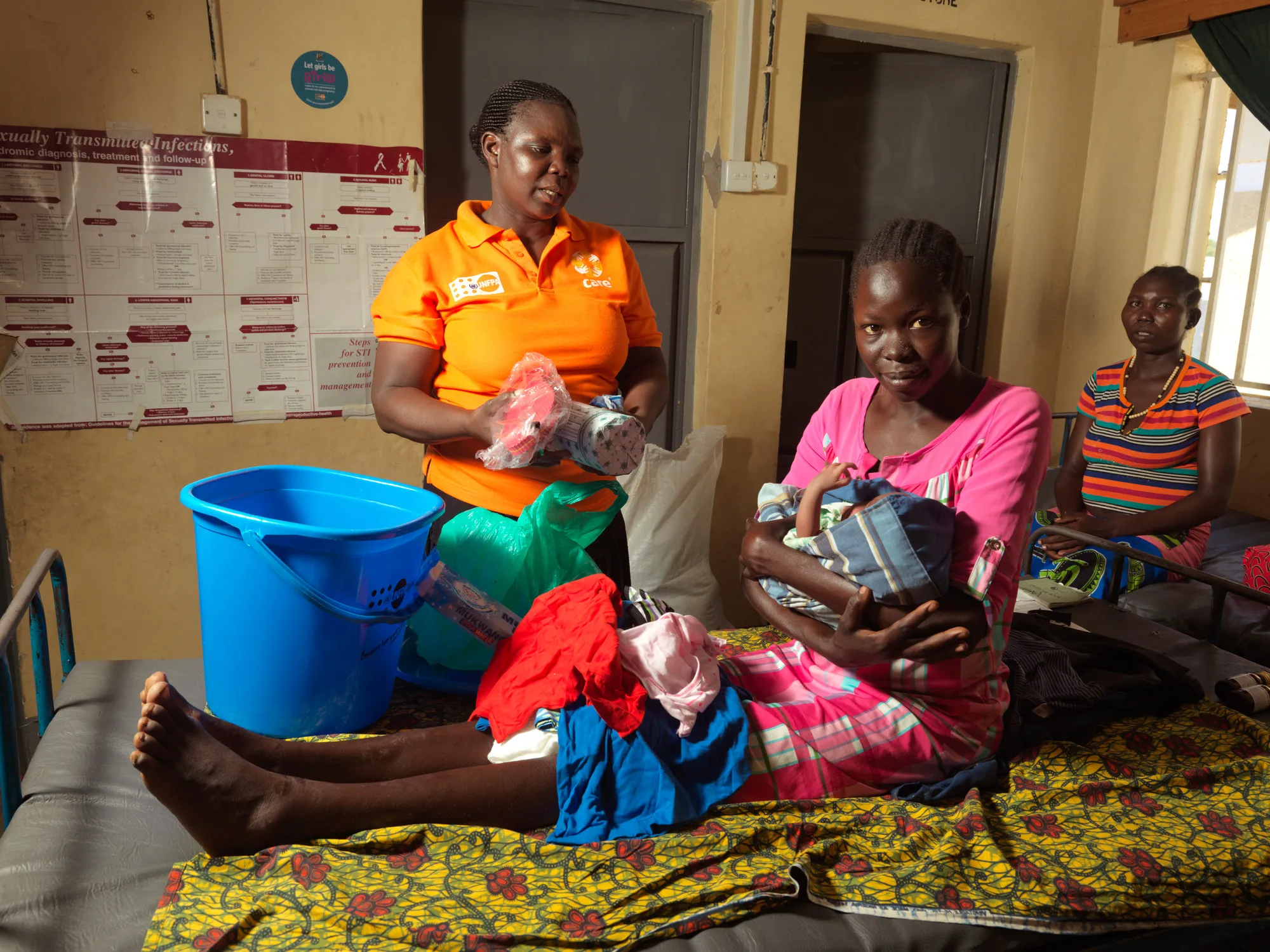Even before the onset of the COVID-19 pandemic, every day more than 500 women and girls in countries with emergency settings were dying during pregnancy and childbirth due to lack of quality sexual and reproductive health services. All women and girls need and have the right to comprehensive, essential and lifesaving sexual and reproductive health services, but arguably nowhere is that need more acute than in humanitarian settings, where an estimated 35 million women and girls aged 15-49 require humanitarian assistance with SRHR services. Even against this backdrop, the women and girls directly affected in humanitarian settings often can’t access safe and trustworthy accountability mechanisms, to share their experiences and seek protection of their reproductive rights.
There are complex challenges to ensuring the availability, accessibility, and acceptability of quality sexual and reproductive health services in humanitarian settings. Ensuring that the voices of women and girls directly affected by human rights violations are heard, protected from reprisal, and fed into a process of accountability that leads to systemic change in policy and practice is vital for effective service delivery. Accountability is not a one-time assessment or action. To be genuine, accountability structures must be both formal and informal, action oriented and ongoing. Realizing this accountability means, according to a local Ugandan health official, that “women need to make claims for their rights and duty-bearers must be able to ensure they provide, fulfill and facilitate. Within that framework accountability can be meaningful.” Without rights-based accountability, systemic change leading to more equitable and effective SRH services cannot happen.
Between March 2020- June 2021 the Center for Reproductive Rights and CARE Uganda are partnering to address gaps in accountability for SRHR by piloting an innovative and participatory accountability model grounded in human rights law and principles in Pagirinya refugee settlement in northern Uganda, home to over 200,000 refugees, most of whom are women and children.
What changed?
- Women’s voices are amplified to improve SRH services: a diverse nine-member Community Council for SRHR, including advocates from the disability and adolescent community that collects, reviews, and responds to SRHR-related complaints. As one women representative says “I feel good to be a member of this project … we were able to present the issues facing women, especially ANC services where women complained they were being harassed. We followed it up and it has improved access to ANC by women.”
- Services are improving: The project has been able to get more menstrual hygiene kits to adolescents, more medical equipment that works for women with disabilities, and improve access to HIV treatments even in the middle of the COVID pandemic.
- Surfaced human rights violations and SRH service gaps previously unseen: in only eight months of piloting, the accountability mechanism has collected and reviewed over 50 SRHR-related complaints about quality of SRH services, discrimination when seeking services, and lack of acceptable information about SRHR among adolescents.
- Successfully reached crisis affected women and girls: the program has successfully reached 5,155 crisis affected women and girls with SRHR information and access to the accountability mechanism.
- District level duty bearers for health are responding to SRHR violations: government executives have committed to changing sub-county by-laws to include improving adolescent SRHR and preventing early forced marriage.
- Strengthened accountability through rights-based approaches and advocacy: one women’s representative reflected that “in most cases we had been pressed down. We came to realize that (if we) advocate for women’s rights then women will also have their rights.”
How did it happen?
- Meaningful engagement with women and girls from the start: refugee and host were involved at the pilot outset through human rights assessments and in co-design process of the mechanism to identify what they need and what will work
- Grounded the project in human rights law and principles: humanitarian service providers and women representatives understand reproductive rights as human right and think about SRHR issues in the settlements through a human rights lens.
- Focus on enforceability: worked with Ugandan government duty-bearers to select an independent third party responsible for transparent review of SRHR complaints to hold them accountable. A government chairman shared that unlike other programs, “this project was brought closer to the leaders. To be part and parcel if the project.”
- Proactive and adaptive change: when problems or limitations surfaced, we adapted the model and implemented new ideas to respond to feedback from participants at all stages of design, implementation, and monitoring.
What did we learn?
Refugee and host community women and girls in Adjumani experience multiple and intersecting forms of discrimination when seeking SRH services and their rights to health, dignity, information, and privacy are not always respected. Current systems are not doing enough to stay accountable to women and their needs. This work proves that it’s possible to create structures in dynamic settings that let women access their rights and hold people accountable when they need to.
Where do we go next?
Over the next three years, our next steps are to work with the Adjumani district government, UN Women and UNHCR, and the coalition of organizations that make up the district Reproductive and Maternal Health Technical Working Group to institutionalize and expand this model across the district. To do this we will need new funders who are committed to advancing SRHR in humanitarian settings through human rights centered and women-led innovations. After our evaluation, planned for mid 2021, we will know more about how introducing accountability mechanisms in the settlement contribute to the availability, accessibility, acceptability, and quality of SRH services and the lived SRHR realities of women and girls.
Want to learn more?
Check out the story and the Instagram post.
United Nations Fund for Populations (UNFPA), State of the World Population Report 2019, New York, 2019.

